“You can sleep when you’re dead.”
This is a common excuse to forgo sleep in favor of working, an adventure, reading, or something else. Honestly, it’s not a bad sentiment, just an encouragement to live life to the fullest while you still have the chance. But, there’s a problem with this saying.
Poor sleep habits will take away from your life. And if you’re not sleeping, or getting enough decent sleep, you won’t be able to live life to the fullest. It’s an indisputable fact that human beings require sleep to survive. Sufficient sleep is important for health, fat loss, muscle gain, relieving anxiety, and skincare.
Unfortunately, many people have trouble getting enough sleep. According to Sleep Health, 70% of adults in America say they get insufficient sleep at least once a month, and 11% every night. Similarly, the CDC says one in three adults don’t get enough sleep. If you’re one of these people, don’t worry! There are ways to improve your sleep, both in getting more and getting better sleep.
Here are 13 Tips for Improving Sleep:
Stick to a schedule!
It’s important to go to sleep at the same time every night and get up at the same time each morning, even on weekends. Consistency in your sleep schedule can aid your body in its natural circadian rhythm functions, so it will begin to improve long-term sleep quality.
Your mind relies on you and your habits to accurately communicate with the rest of your body. When patterns are irregular, it can alter the circadian rhythm and melatonin levels, which will confuse the signals to your brain about when it’s time to sleep. So, try setting a schedule and sticking to it every day!
 PRO-TIP: Your phone may be able to help with this! Your alarm app’s bedtime tab may have the option to set a time for a calming reminder to go to sleep every night and an alarm to wake you up at the same times every day. You can also check out other free apps that work on your phone, such as Sleep Time, Sleep Cycle, or Pillow.
PRO-TIP: Your phone may be able to help with this! Your alarm app’s bedtime tab may have the option to set a time for a calming reminder to go to sleep every night and an alarm to wake you up at the same times every day. You can also check out other free apps that work on your phone, such as Sleep Time, Sleep Cycle, or Pillow.
Watch those naps.
Napping can be great, but try to avoid them in the afternoon, especially after 3 pm. And, if possible, don’t take naps longer than 20 or 30 minutes. Power naps are your friends, and long or irregular naps are not. Again, you don’t want to confuse your body and internal clock by taking a long nap in the middle of the day.
 PRO-TIP: Power naps in the early afternoon can actually be beneficial and enhance daytime brain function. If you have some sleep debt to pay off, try doing it with a short daytime nap rather than sleeping longer in the mornings. This allows you to make up lost sleep while avoiding jetlag-like symptoms and without disturbing your natural sleep schedule.
PRO-TIP: Power naps in the early afternoon can actually be beneficial and enhance daytime brain function. If you have some sleep debt to pay off, try doing it with a short daytime nap rather than sleeping longer in the mornings. This allows you to make up lost sleep while avoiding jetlag-like symptoms and without disturbing your natural sleep schedule.
Limit caffeine and alcohol
Limiting caffeine is ESPECIALLY important in the afternoon. While coffee can be helpful, and many people rely on it for needed energy, it can negatively impact your sleep quality. Caffeine stimulates your nervous system and, if consumed later in the day, can keep your body from naturally relaxing at night. Caffeine can affect your body for 6-8 hours, so it’s best to avoid it after 3 pm.
Alcohol is similar, as it can negatively affect your sleep and hormones. It can reduce the production of melatonin in your body, leading to disrupted sleep patterns. So, avoid that last glass before bed.
 PRO-TIP: If you’re having trouble without the caffeine, try these natural ways to boost energy.
PRO-TIP: If you’re having trouble without the caffeine, try these natural ways to boost energy.

Go outside!
Increasing bright light exposure during the day is a GREAT natural way to communicate with your body’s internal clock. Light exposure controls melatonin production, so your brain secretes more in the dark, making you sleepy. Getting sunlight in the morning and during the day tells your body, “Hey, it’s time to be awake and get work done.” If your body knows when to be awake, it will also know when it’s time to sleep. So, try increasing your exposure to daily natural light.
Drink your morning coffee outside or eat breakfast by a window. Take your work breaks outside, exercise outdoors, and if possible, set up your workspace with as much natural light as possible.
 PRO-TIP: If you’re unable to go outside more, or get more exposure to sunlight, invest in an artificial bright light device or a light therapy box. These stimulate sunshine and are especially helpful during the winter, while days are much shorter.
PRO-TIP: If you’re unable to go outside more, or get more exposure to sunlight, invest in an artificial bright light device or a light therapy box. These stimulate sunshine and are especially helpful during the winter, while days are much shorter.
Throw out the cigarettes.
Avoid nicotine completely to improve your sleep quality. Nicotine is another stimulant (like caffeine) and disrupts your sleep, especially if you’re smoking or consuming nicotine close to bedtime. A hit of nicotine will wake you up, make you feel more alert, and disrupt your body’s natural circadian rhythm.
 PRO-TIP: Sleeping is often more difficult when you’re trying to quit smoking. But don’t be fooled into thinking that’s because smoking HELPS sleep. Your body is just acclimating to functioning without nicotine, causing withdrawal symptoms such as cravings, irritability, and difficulty sleeping. This will be resolved, though, and your sleep will improve drastically when you’re not consuming nicotine at all.
PRO-TIP: Sleeping is often more difficult when you’re trying to quit smoking. But don’t be fooled into thinking that’s because smoking HELPS sleep. Your body is just acclimating to functioning without nicotine, causing withdrawal symptoms such as cravings, irritability, and difficulty sleeping. This will be resolved, though, and your sleep will improve drastically when you’re not consuming nicotine at all.
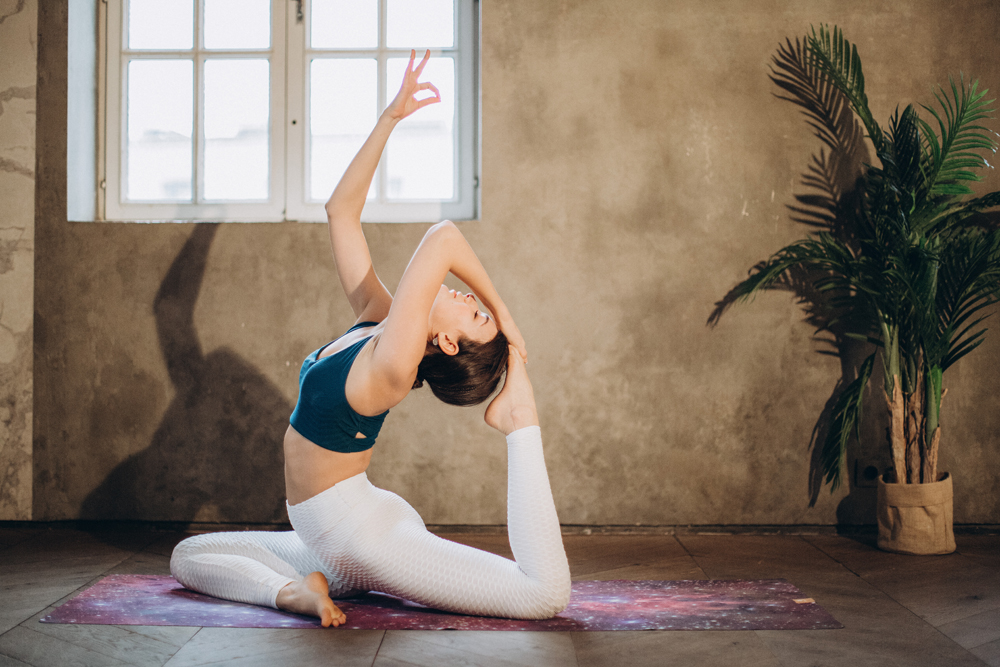
Don’t forget about exercise!
Regular exercise is vital for a healthy life and even effects your sleep. It enhances all aspects of sleep, has been known to reduce insomnia symptoms, can reduce the time it takes to fall asleep by 55%, and can help with anxiety, which often interrupts sleep. Exercising will release beneficial hormones, speed up your metabolism, and elevate your body temperature, so plan your workout for the morning or early afternoon so you can take advantage of the benefits.
However, be careful not to exercise right before bed. The stimulatory effect of exercise increases alertness and hormones, such as adrenaline, filling the body with natural energy. So, performing exercise within 2 or 3 hours of bedtime can actually hurt your sleep rather than help. And be sure to give your body time to adapt, as it can take a few months of regular activity before you’re experiencing the full positive effects.
 PRO-TIP: The more vigorous or intense your workout, the more powerful the sleep benefits. But even something as simple as a ten-minute walk can improve sleep quality. And if you can’t work out until late afternoon or early evening, try something relaxing and low impact, like yoga.
PRO-TIP: The more vigorous or intense your workout, the more powerful the sleep benefits. But even something as simple as a ten-minute walk can improve sleep quality. And if you can’t work out until late afternoon or early evening, try something relaxing and low impact, like yoga.
Clean up your diet.
Clean eating has numerous benefits, including the improvement of sleep. A healthy diet and adequate sleep go hand-in-hand, affecting each other. Foods such as sugars and refined carbs (white bread, white rice, pasta, etc.) can keep you up at night or even pull you out of the critical, restorative sleep stages. Alternatively, a healthy diet can help you fall asleep quicker, enhance sleep quality, duration, and consistency.
If you need guidance with your diet, we would love to help you. This journey is best made with others, not alone.
 PRO-TIP: Avoid big late-night meals. Lock all the heavy, spicy, acidic, and fatty foods within 2 hours of your bedtime, as eating later in the evening negatively affects sleep quality. However, consider a small snack at night, so you’re not going to bed hungry.
PRO-TIP: Avoid big late-night meals. Lock all the heavy, spicy, acidic, and fatty foods within 2 hours of your bedtime, as eating later in the evening negatively affects sleep quality. However, consider a small snack at night, so you’re not going to bed hungry.
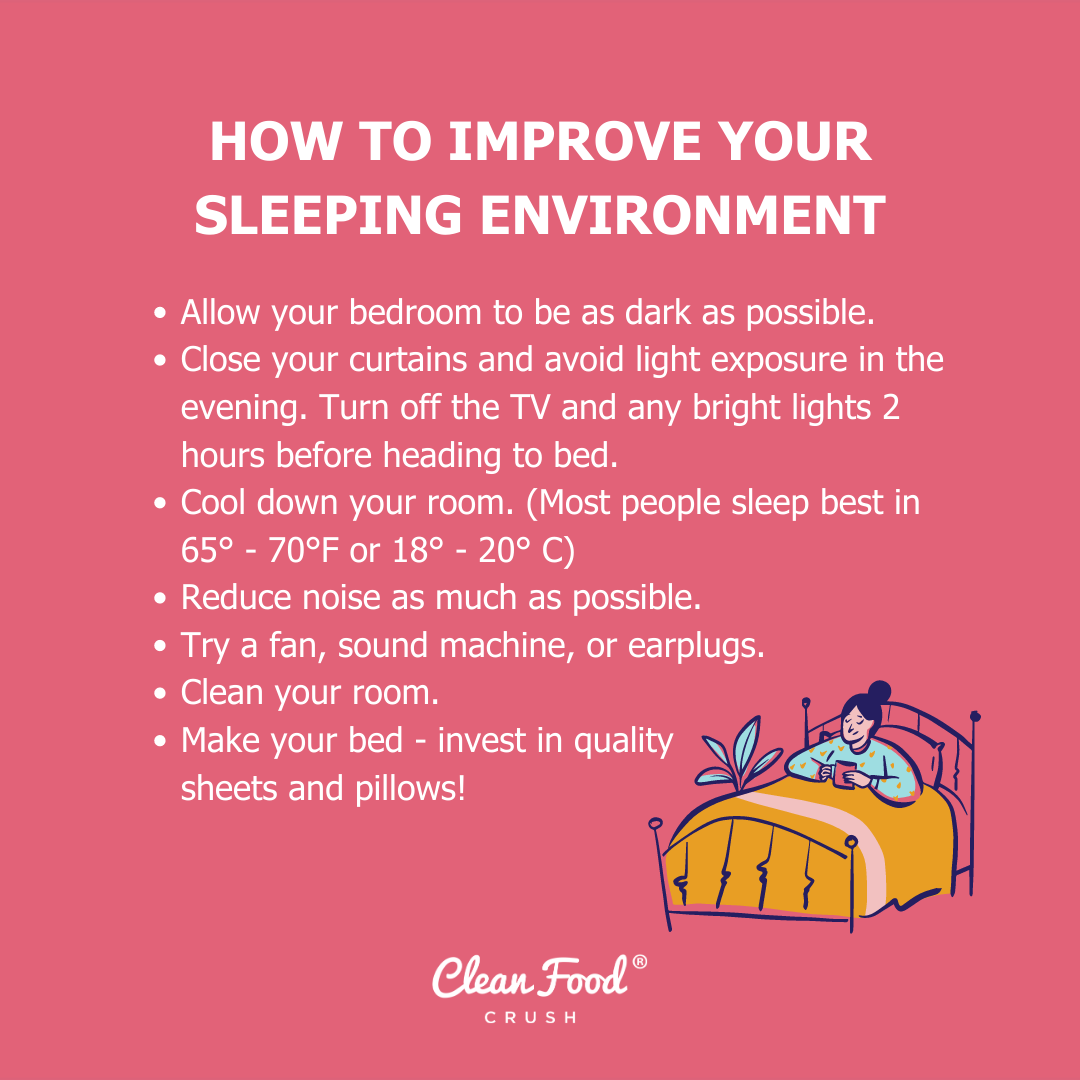
Craft the perfect bedtime routine.
This one fits right in with sticking to a schedule. The goal here is to work with your body, aiding it in relaxing and falling asleep. Create a routine that works best for you, getting everything done that needs to be done while also relaxing before bed.
Turn off the TV and other screens at least an hour or two before bed and start your routine. This may include skincare, a bath or shower, reading, listening to calming music, applying lotion, deep breathing, yoga or other relaxing stretches, and meditation. A peaceful routine will signal to your brain that it’s time to wind down, let go of stress, and prepare for sleep.
 PRO-TIP: A hot bath 90 minutes before bed can help start the wind-down process. But if you don’t have time for a full bath, you can just submerge your feet in hot water for a few minutes, relaxing your body.
PRO-TIP: A hot bath 90 minutes before bed can help start the wind-down process. But if you don’t have time for a full bath, you can just submerge your feet in hot water for a few minutes, relaxing your body.
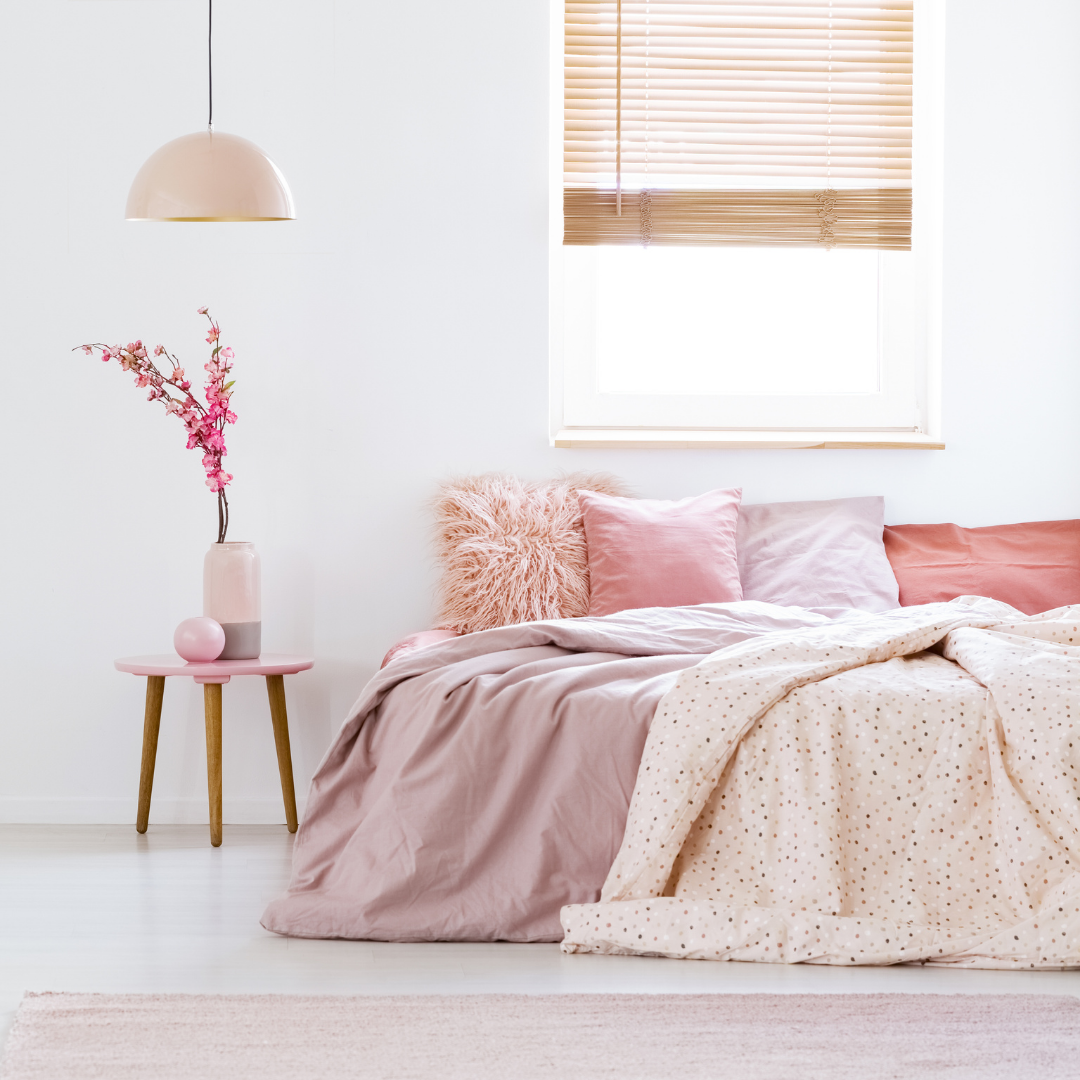
Set the mood – what is your bedroom atmosphere?
After you’ve completed your bedtime routine, what environment are you entering? Your sleep environment sends a powerful message to your mind and body, so be sure it’s perfect. While this may be slightly different for everyone, in general, where you sleep should be a dark, cool, quiet, clean, relaxing, and comfortable environment.
Allow your bedroom to be as dark as possible. Close your curtains and avoid light exposure in the evening. Turn off the TV and any bright lights 2 hours before heading to bed.
Most people sleep best in a cooler room (65° – 70°F or 18° – 20° C) with adequate ventilation, though this depends on your personal preferences. If you live in a colder climate, try opening a window (as long as you’re safe). If not, invest in a fan and air conditioning. A too hot or too cold bedroom can interfere with sleep quality, so find out what works best for you.
Reduce noise as much as possible, and if you can’t eliminate it all, try masking it with a fan, sound machine, or earplugs.
 PRO-TIP: Blue light, found in electronics such as phones and computers, is the worst regarding negatively impacting sleep. Try to reduce the amount you’re exposed to before bed. If necessary, you can find glasses that block blue light or install apps on your computer and phone that limit blue light.
PRO-TIP: Blue light, found in electronics such as phones and computers, is the worst regarding negatively impacting sleep. Try to reduce the amount you’re exposed to before bed. If necessary, you can find glasses that block blue light or install apps on your computer and phone that limit blue light.
Try tapping – yes, tapping.
Bilateral tapping is a technique similar to EMDR (eye movement desensitization and reprocessing) that many therapists and psychologists have begun to utilize to aid in improving sleep. This is best when the struggle to sleep stems from anxiety, trauma, or nerves.
Put simply, this is the action of lightly tapping your own body in alternating motions, creating a rhythm that your body can adapt. This can be done in many different ways, like crossing your arms over your chest and tapping back and forth on your upper arms or chest, creating a pattern of taps (example: two taps to the forehead, right cheekbone, left cheekbone, chin, repeat), or tapping back and forth on your thighs like you’re playing bongo.
 PRO-TIP: If you think this technique is for you, do a bit of research to learn how best to utilize bilateral tapping. You can start with this article, this one, or by looking up examples on YouTube.
PRO-TIP: If you think this technique is for you, do a bit of research to learn how best to utilize bilateral tapping. You can start with this article, this one, or by looking up examples on YouTube.
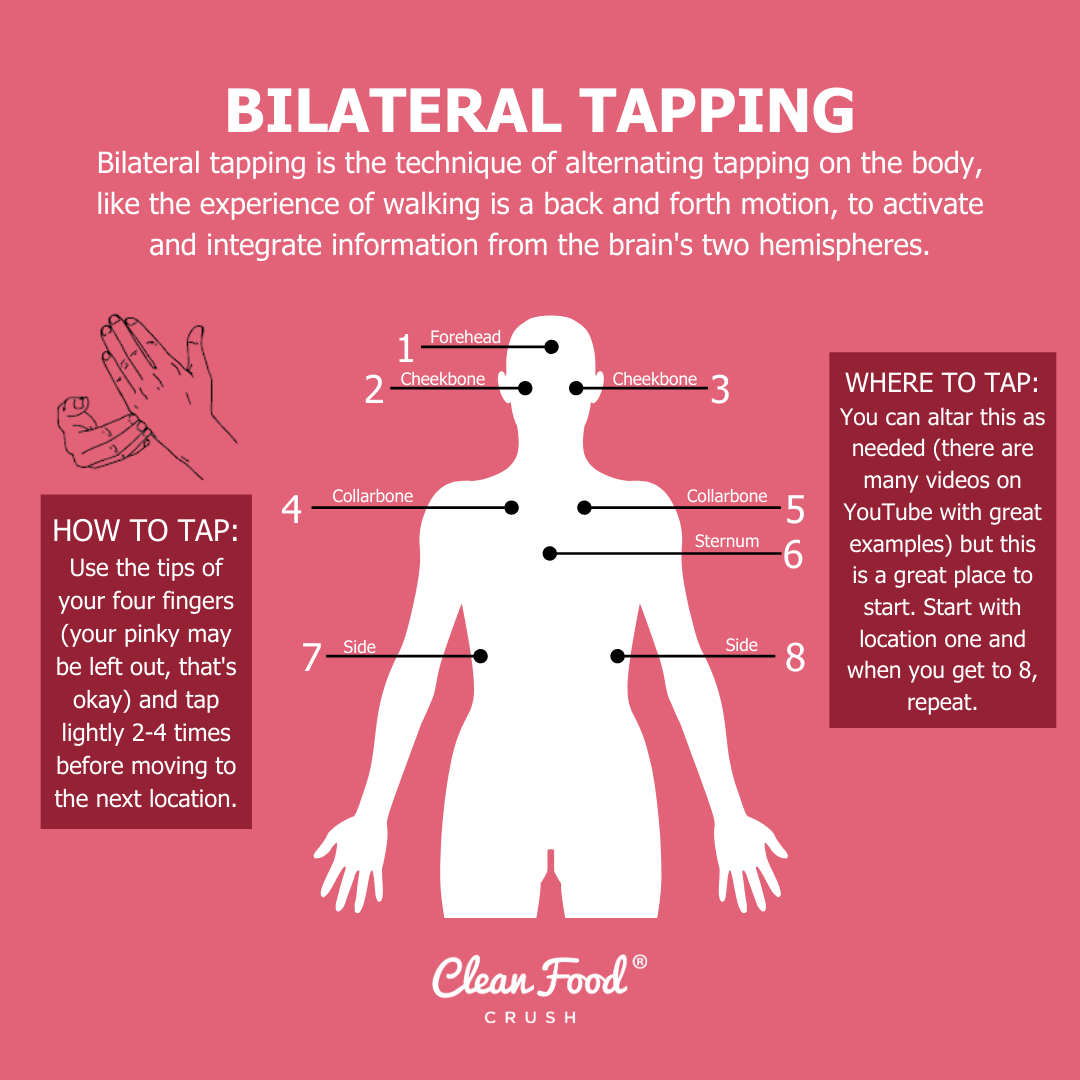
Check out some natural supplements.
The best natural supplement to start with is melatonin, which is the key hormone that tells your brain when it’s time to relax and go to bed. Melatonin is a great supplement to start with since it naturally occurs in your body and doesn’t cause withdrawal symptoms. Start with a low dose to see how your body reacts before increasing.
Other supplements you can try:
- Valerian root: This perennial flowering plant may help you fall asleep and improve the quality of sleep. You can ingest this or get it as an essential oil.
- Magnesium: Responsible for over 600 reactions within your body, magnesium can improve relaxation and enhance sleep quality.
- Lavender: Powerful and popular, this herb has many benefits and can induce a calming effect on your body. Try it using an essential oil diffuser!
- Glycine: An amino acid, some studies show glycine can improve sleep quality. Stick to about 3 grams.
- Ginkgo biloba: This is a natural herb that can reduce stress and aid with relaxation.
 PRO-TIP: Check with your healthcare provider before regularly taking any supplement or medication. They can alter your brain chemistry or cause dependency, so it’s better to be safe than sorry! Also, be sure you’re only trying one supplement at a time.
PRO-TIP: Check with your healthcare provider before regularly taking any supplement or medication. They can alter your brain chemistry or cause dependency, so it’s better to be safe than sorry! Also, be sure you’re only trying one supplement at a time.
Invest in quality products
The type of mattress you’re sleeping on matters, I promise! So do your pillows and sheets. You need to be comfortable to get decent sleep and have enough room to stretch and comfortably turn or roll over without becoming tangled in your sheets. If you wake up with pain in your back or neck, it may be time to try out a new mattress. Also, check the support your pillow is offering!
 PRO-TIP: Pinpoint your most significant issue with sleeping and see if different products can help with that. Are you a sweaty sleeper? Maybe your sheets aren’t breathable enough! Have allergies? Could be fixed with new sheets. Do some research to discover what is best for you. It may be bamboo, linen, cotton, or Eucalyptus sheets!
PRO-TIP: Pinpoint your most significant issue with sleeping and see if different products can help with that. Are you a sweaty sleeper? Maybe your sheets aren’t breathable enough! Have allergies? Could be fixed with new sheets. Do some research to discover what is best for you. It may be bamboo, linen, cotton, or Eucalyptus sheets!
Talk to your doctor.
If none of these tips work or you continue to have trouble sleeping, consult your doctor. Underlying health conditions could cause your sleep problems, such as sleep apnea, sleep disorders, or anxiety.
If you’ve always struggled with sleep, the wisest thing you could do is consult your healthcare provider. Tips and natural remedies are great, but sometimes a doctor has the real answer you’ve been looking for.
 PRO-TIP: Getting help from a professional is not a sign of weakness or an admission of defeat. You wouldn’t feel guilty for going to a doctor about a broken arm, so there’s no reason to feel bad about getting help for sleep or anxiety.
PRO-TIP: Getting help from a professional is not a sign of weakness or an admission of defeat. You wouldn’t feel guilty for going to a doctor about a broken arm, so there’s no reason to feel bad about getting help for sleep or anxiety.
THE BOTTOM LINE.
Sleep plays a key, vital role in your health and shouldn’t be ignored or sacrificed. Insufficient sleep can lead to skin problems, higher anxiety, lower performance at work and concentration, increased risk of obesity, and heart disease. If you want to live a healthy life and increase your overall well-being, try making sleep a top priority and improving your sleep quality using the tips above.
from Clean Food Crush https://ift.tt/3c5pfvz

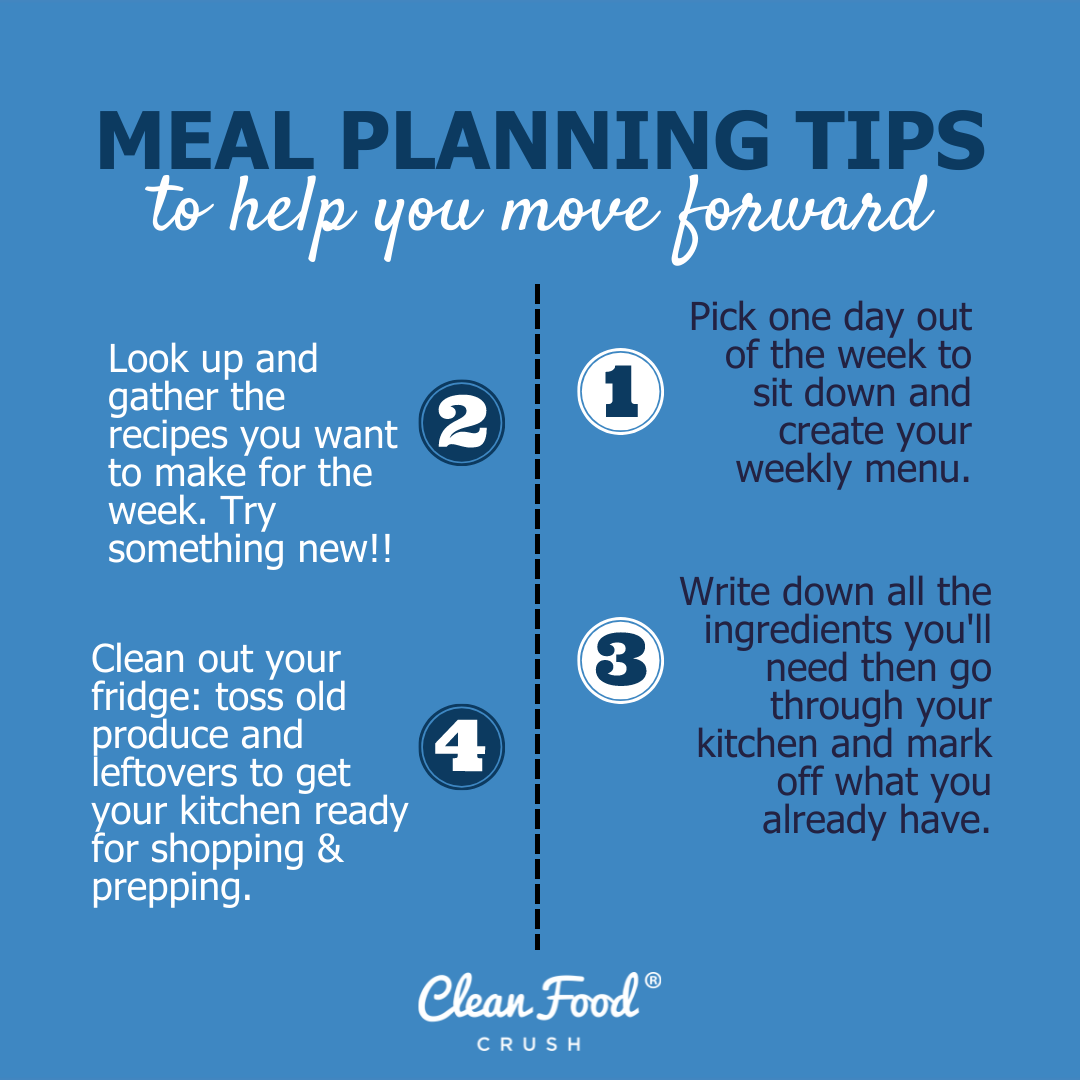

No comments:
Post a Comment